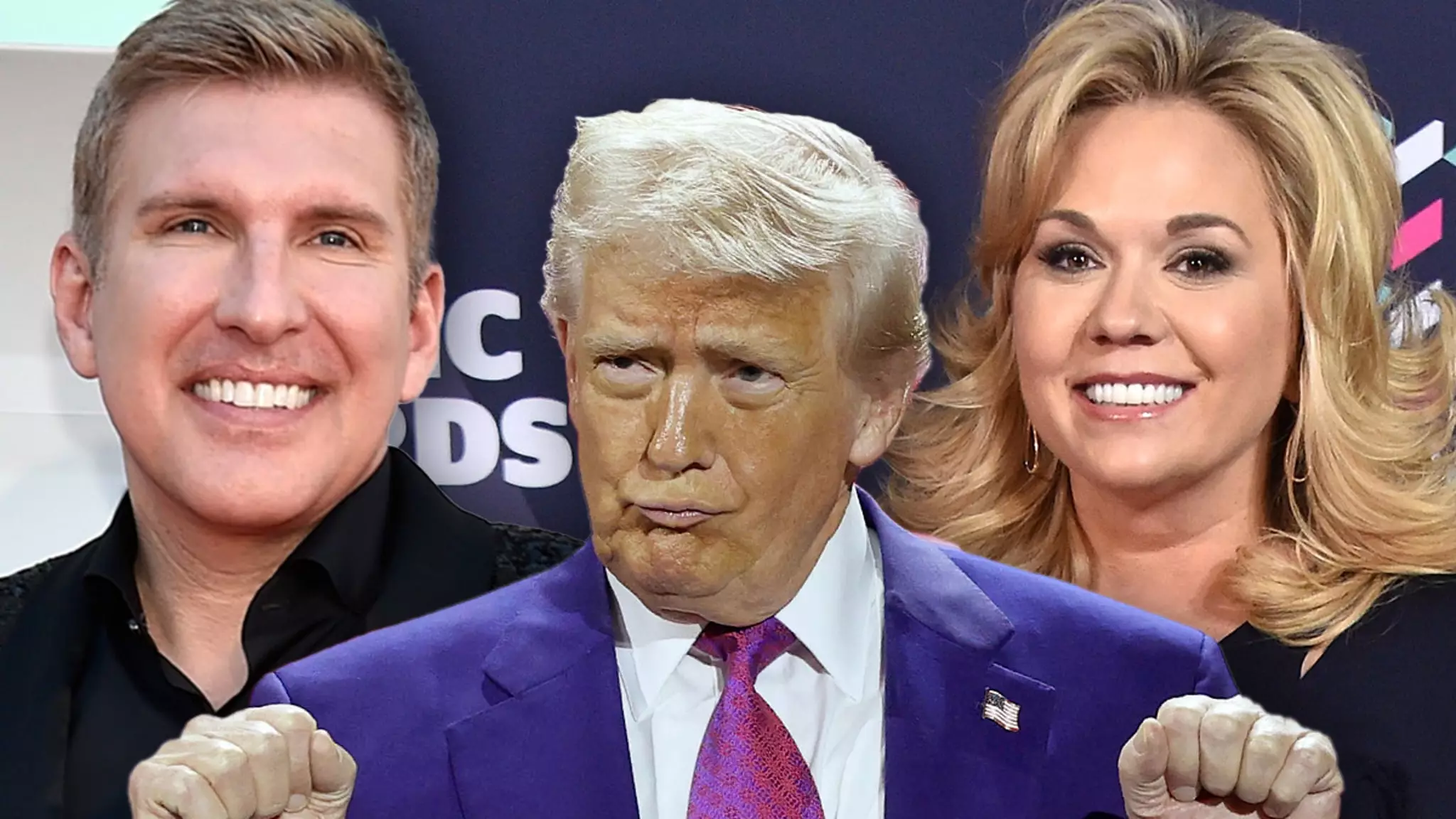In an unusual twist that captures the intersection of reality television and the U.S. justice system, Todd and Julie Chrisley, stars of the popular show “Chrisley Knows Best,” have attracted national attention following their recent pardons from former President Donald Trump. Initially convicted in 2022 of serious financial crimes, including bank fraud and tax evasion, the couple was sentenced to 12 and 7 years in federal prison, respectively. Their case, which has been steeped in controversies surrounding political bias and the nature of justice, reveals the potent dynamics of celebrity, politics, and public perception.
The Chrisleys’ saga began when they were indicted by a federal grand jury in 2019, yet the timeline coincided intriguingly with Trump’s presidency. The couple’s daughter, Savannah, has been an outspoken advocate for her parents, suggesting that their high-profile status and conservative values made them targets in a politically charged environment. She has publicly called the prosecution a manifestation of systemic bias, arguing for an alarming intersection between law and politics.
Political Connections and Celebrity Culture
The involvement of President Trump in granting clemency raises profound questions about the role of celebrity culture in shaping political decisions. While presidential pardons are a constitutional power, leveraging this authority to aid a reality television family is emblematic of how mediated narratives can influence political actions. Savannah’s connection to mainstream media—her appearances at major events like the Republican National Convention—embodies the entanglement of entertainment with political advocacy.
Trump’s decision to grant pardons to the Chrisleys showcases a familiar pattern: politicians often resort to leveraging relationships with high-profile figures to bolster their narratives. In this case, it appears that Trump’s appeal is as much about rallying a specific voter base as it is about actual justice. The notion of “caring for one’s own” sends a potent message to conservative constituents, suggesting a partisan alignment that goes beyond mere legalities.
The Implications of the Pardon
The decision to pardon the Chrisleys does not merely affect their personal lives; it opens up wider discussions about the equity of the justice system and highlights its vulnerabilities to political influence. If a case like the Chrisleys’ can be overturned due to the political affiliations and celebrity status of the individuals involved, what does this mean for average Americans who find themselves ensnared in the legal system? The Chrisleys’ circumstance underscores a potential disparity; those with resources, connections, and platforms may navigate the justice system with greater ease than others.
Moreover, this pardon demonstrates a broader narrative where individual stories are juxtaposed against the backdrop of systemic issues within the legal framework. The Chrisleys’ release may instigate conversations about fairness, the integrity of legal processes, and how public perceptions can sway outcomes. The public reaction may very well shape future cases involving similar circumstances, as advocacy for justice will inevitably be polarized along ideological lines.
With the evolving dynamics of celebrity influence and political endorsement, the implications of this pardon extend beyond the Chrisley family, signaling a paradigm shift in the intersection of entertainment and politics. Such developments warrant a reflective analysis of the foundations of justice and the continuing narrative of celebrity culture in America.

